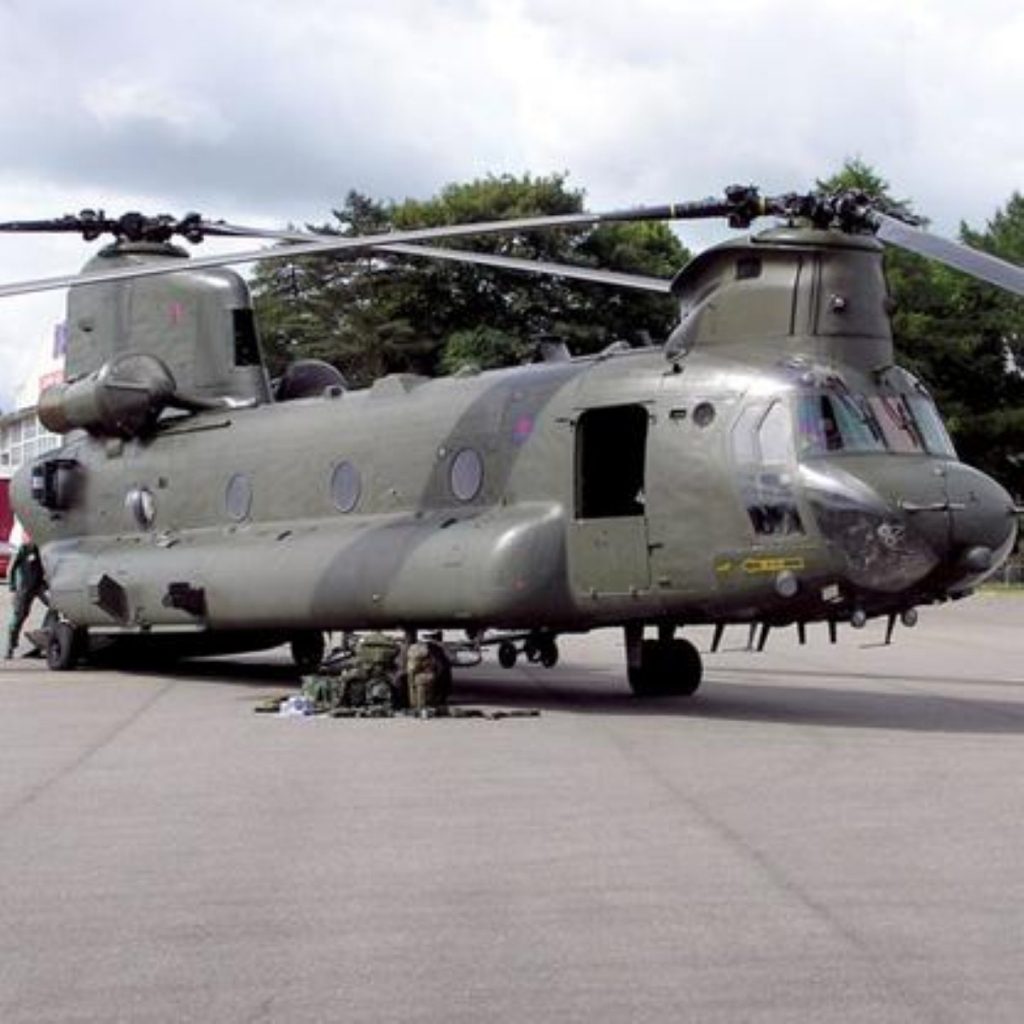Soldiers at risk due to inept procurement
By Jonathan Moore
“Appalling” decision-making and a “catalogue of errors” are the reasons eight helicopters bought by the Ministry of Defence (MoD) in 2001 are still not airworthy, according to a parliamentary committee.
And the Public Accounts Committee (PAC) estimates it will cost well in excess of £422 million to get them airborne.
Meanwhile, underequipped troops in Afghanistan have been forced to modify other helicopters making them harder to fly, increasing risks to their airworthiness and consequently the endangering the lives of British soldiers.


Committee chair Edward Leigh said the decisions made in the story of the Mk3 Chinook helicopters was poor to the point of “irresponsibility”.
“The consequences have included a shortage of helicopter support in Afghanistan thereby heightening the risk to the lives of British troops,” he said.
“The programme was hamstrung from the start by the appalling decision to buy the aircraft without securing access to their software source code.”
The eight helicopters were ordered in 1995 as part of a package of 14 Mk2a Chinooks and were scheduled to be modified to Mk3 standard for use in the special forces.
The committee looked at the purchase of these eight helicopters and described it as “one of the worst examples of equipment procurement that we had ever seen”.
In a statement it said: “The [MoD] has a history of long delays and cost increases within its procurement projects.
“Even by these standards, the Chinook Mk3 project has been a catalogue of errors from the start.”
Mr Leigh said that as a consequence of these problems the lives of British soldiers were being put at risk.
He said: “The need by our forces in Afghanistan for helicopters for high risk special operations has necessitated fitting the more basic Chinook Mk2 helicopters currently in service there with a bolt-on night enhancement package.
“This has made the aircraft harder to fly and the use of the package has been judged a key risk to the helicopters’ airworthiness.
“There is a big question mark over whether it is a risk the department should accept.”
The committee noted that the MoD did attempt to redress the problem with the unsuccessful Fix to Field programme.
Under mounting pressure in 2007 they abandoned this and reverted to another programme designated Reversion, but failed to consult with manufacturers Boeing which resulted in a 70 per cent increase in costs.









